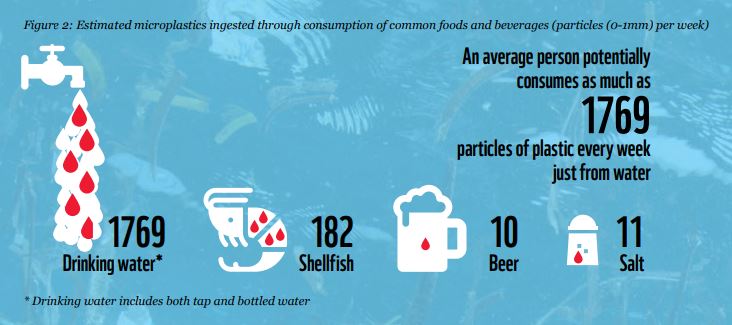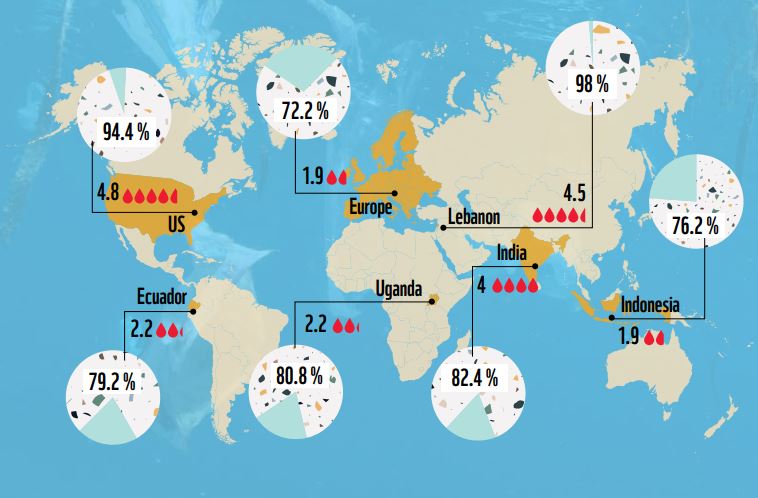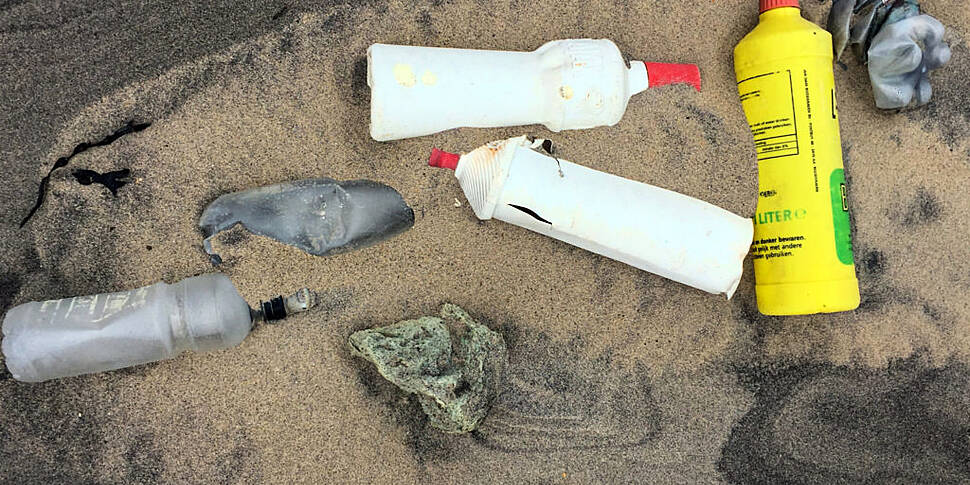New research has found that you could make a credit card out of the amount of plastic the average person ingests every week.
The study, commissioned by WWF International, finds that plastic pollution is now so bad, people could be taking as many as 2000 tiny pieces of plastic into their bodies every week.
That is around 5 grams every week – or 250 a year.
It finds that the most common way people ingest microplastics is through the consumption of commons foods and drinks like water, shellfish, beer and salt.
 Estimated microplastics ingested through consumption of common foods and beverages. Image: WWF International
Estimated microplastics ingested through consumption of common foods and beverages. Image: WWF InternationalEnvironmental scientist Dr Cara Augustenborg said the figures are not surprising.
“Plastics are constantly breaking down into smaller and smaller particles,” she said.
“One of the largest sources of marine litter is things like plastic bottles, plastic straws and cutlery which break down into what they call micro-plastics.
“So, even the water that we drink out of the plastic bottles that we may buy out of the store; so that is potentially one source of this plastic pollution that we are ingesting.”
 Map of average percentage of tap water sample containing plastic fibers and average number of fibers (>100um) per 500ml. Image: WWF
Map of average percentage of tap water sample containing plastic fibers and average number of fibers (>100um) per 500ml. Image: WWFThe report notes that since 2000, the world has produced as much plastic as all the previous years combined.
Currently, a third of plastic waste ends up in nature – accounting for 100 million metric tons of plastic waste in 2016.
If nothing changes, the ocean will contain one metric ton of plastic for every three metric tons of fish by 2025.
The organisation is urging people to join the 665,000 people who have signed its global petition calling for global legally-binding treaty to tackle plastic pollution.
As part of our sustainability programme we’re testing alternatives to our Plane Water bottles over the next few weeks. Passengers can pick up a carton of water or buy a 100% recyclable & reusable bottle of Plane Water in T1 or T2 after security screening. Both cost €1. pic.twitter.com/4suHXyxvSd
— Dublin Airport (@DublinAirport) June 12, 2019
Dublin Airport has announced it's testing alternatives to their Plane Water bottles over the next few weeks.
Passengers can pick up a carton of water or buy a 100 percent recyclable and reusable bottle after security screening.
The bottles can be refilled at one of 18 hydration station fountains across the airport.














